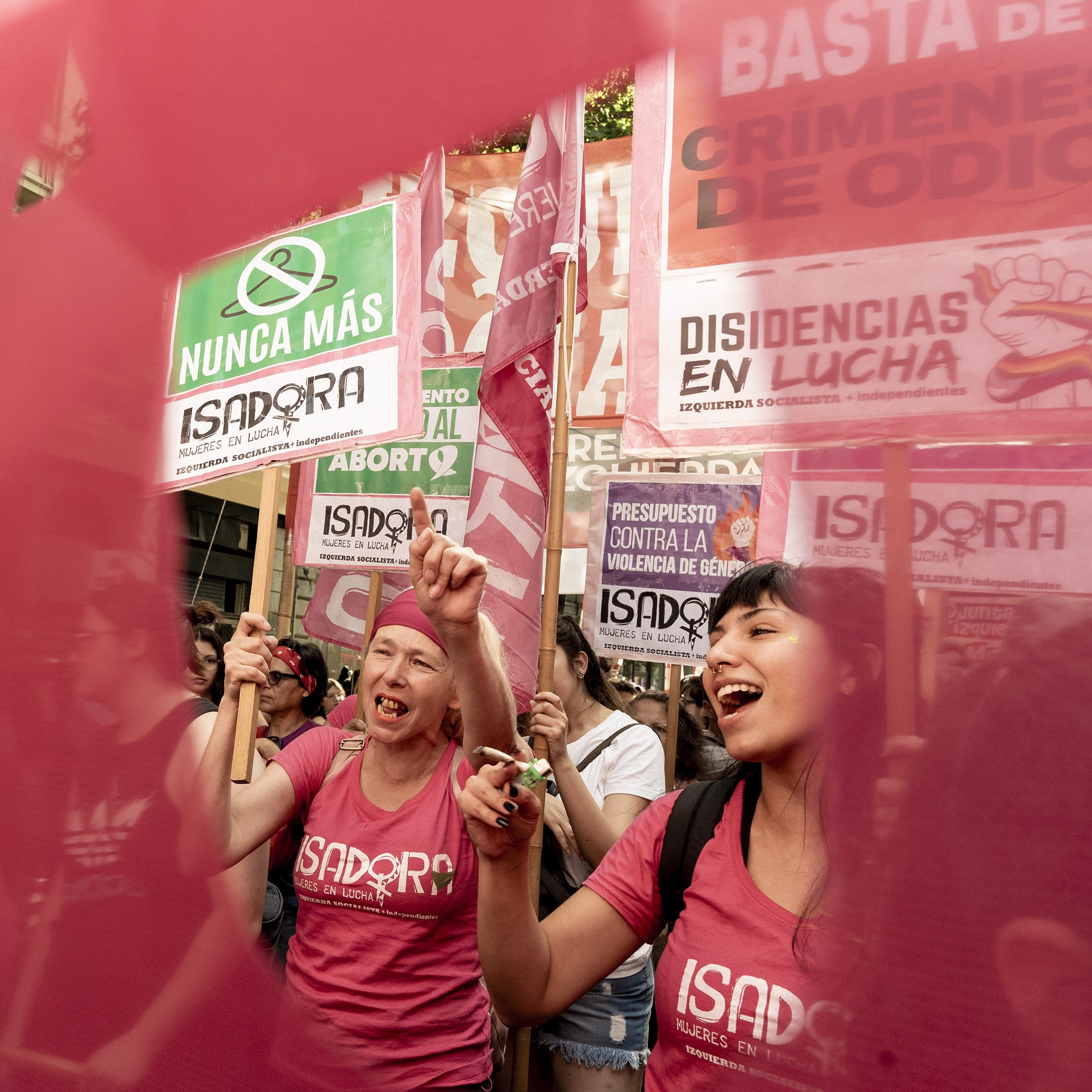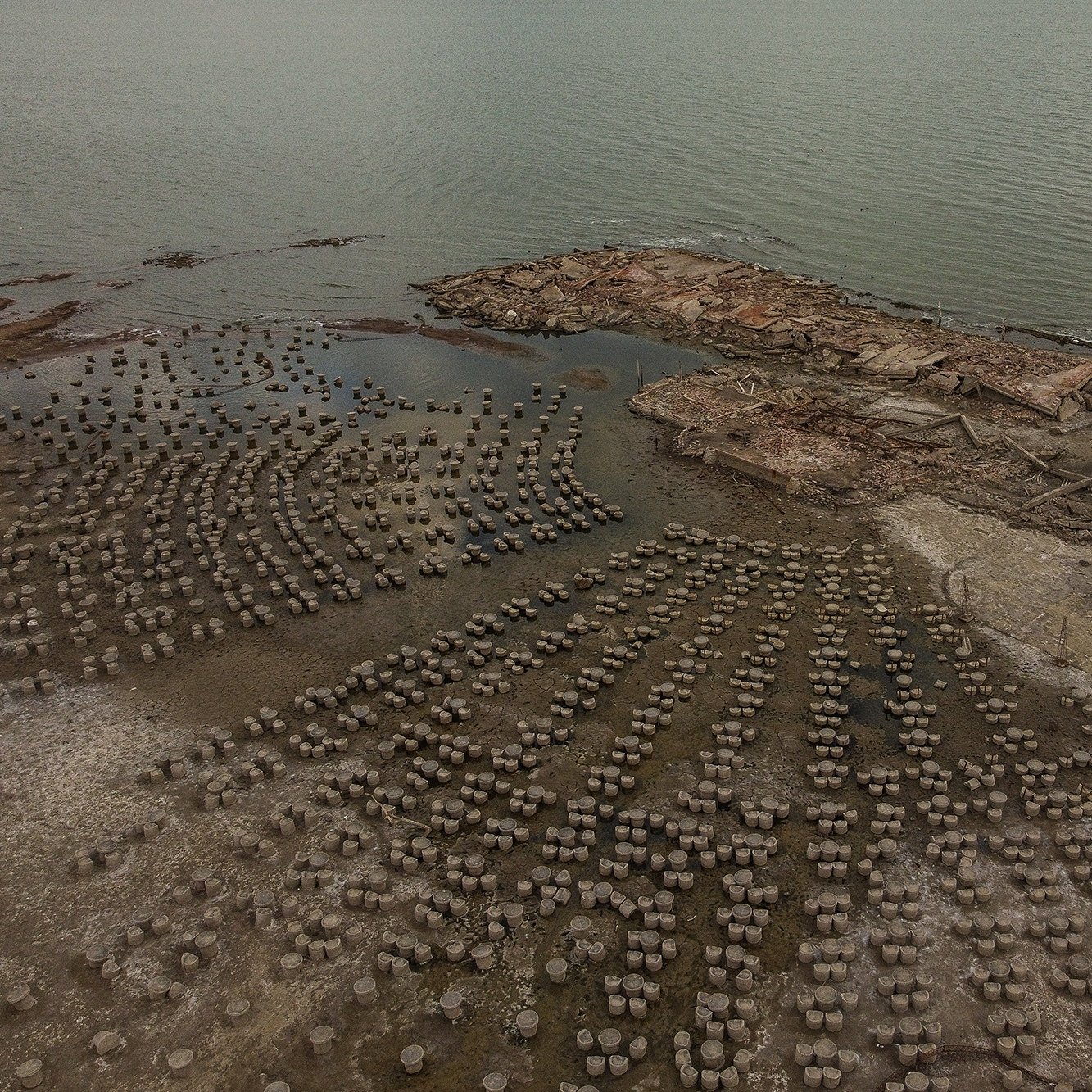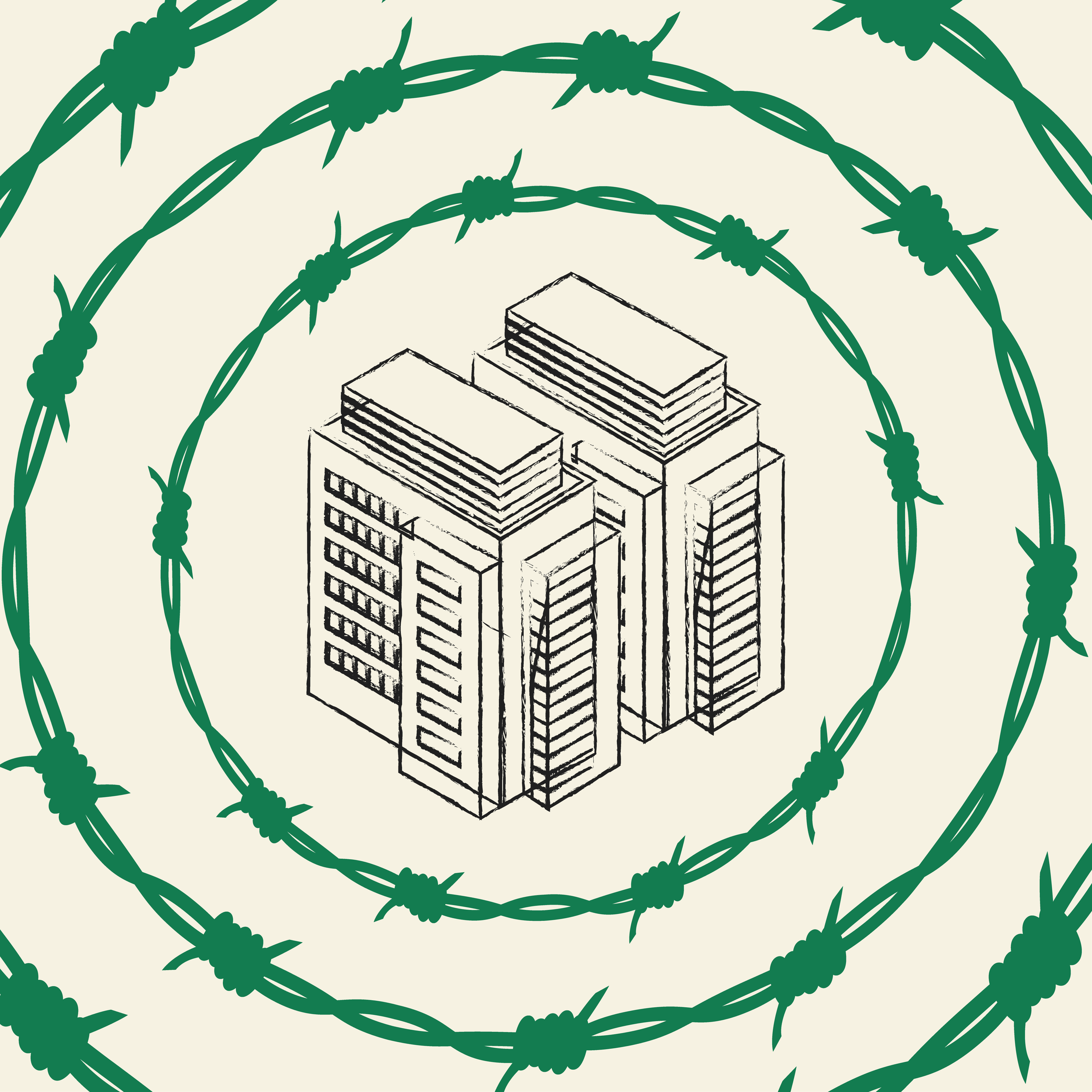Argentina’s Dollar-Obsessed Election
NOVEMBER 16, 2023
The Reporter’s Notebook is our monthly interview series with Dial contributors. To receive these conversations directly in your inbox, sign up for our newsletter.
✺
Lucía Cholakian Herrera’s reporting on Argentina’s blue dollar economy was published in our Weapons issue.
Over the last decade, an underground peso-to-dollar trade has exploded in Argentina. The country now owns 10% of U.S. dollar bills in circulation. Lucía Cholakian Herrera reported on the dollarization fantasy sweeping the nation—and how the currencies are traded illegally. Cholakian Herrera also reported on Argentina's fight to abolish restrictive reproductive rights for The Dial’s first issue and interviewed Ayham Al Sati for The Dial’s roundtable on exiled journalists.
THE DIAL: Why did you want to write about the blue dollar?
LUCÍA CHOLAKIAN HERRERA: I’ve been a reporter for 10 years, but the last three or four I’ve spent reporting about Argentina for foreign outlets. Over these years, the issue with the blue dollar always came up. Whenever I go through fact checking, I obviously need to put the rate for the pesos and the dollars so that it’s clear how much the things that I’m talking about actually cost in U.S. dollars. And the problem is that usually fact checkers will go to the official rate. So they will leave fact checking queries saying, “Hey, I just did the math, and this number is wrong.” And so I have to give a long explanation and be like, “No, it’s not wrong, it is that I’m taking another rate. I don’t think this official dollar rate really expresses how much this is worth for Argentines.”
Dollars are an obsession in Argentina. They are also an object of desire. They are the one thing that will help you become, well, more rich, but also improve your status in this unequal society.
Understanding the dollar helped me somehow trace Argentina’s relationship with the world for the last 50-60 years. At some point during the 60s there was a currency run and the dollar was getting very expensive so people could not save dollars anymore. And sexologists reported an increase in their patients having problems performing sexually because of the crisis that they were having with the dollar.
THE DIAL: How important is the blue dollar as a factor in the elections so far?
LCH: Right now the circumstances in Argentina are horrible: poverty is 40%, inflation 140%. The economic aspect is everything. The blue dollar is very important because it is still the currency rate, the value rate of whether people are going to be able to save money to travel abroad, to be able to buy property of any sort. From motorbikes to houses, most items are bought in cash in U.S. dollars, so if you don’t have them, no matter how hard you work, how much you saving in pesos, you’re not going to be able to buy a house ever.
We are all collectively trying to figure out what the best option is for our country, in what we know is a horrible economic scenario. And even when we have some hopes for certain macro-economic variables in the upcoming years, we know that it’s not going to get better in the short term.
THE DIAL: You wrote a little bit about far-right presidential candidate Javier Milei’s plan to eliminate the peso and adopt the dollar. But if Sergio Massa were to win how would he impact the financial fantasy of the blue dollar?
LCH: One very important thing to know is that the blue dollar mostly exists because there are caps for how much people can access in official dollars. Milei has said that if he wins, he will get rid of caps on his first day.
Massa, who is the current economic minister, has said that it is crazy to eliminate the caps, but that there will be a progressive transition into a more stable situation in relation to foreign currency. Massa is a person with a lot of experience in politics and economics. He is trying to figure out the best way to pay off all foreign currency in our central bank, because we have a huge debt to the IMF. We need the reserves in the central bank to be able to afford that. He’s also worked on agreements with China and Brazil. Argentina is trying to enter into deals so that we can also trade with them.
I think that the blue dollar will probably continue to exist, at least for the next few years. But I think that [Massa] does understand that this is a problem. In fact, there have been a lot of raids on illegal trader shops in the past few weeks by the current government.
THE DIAL: Has reporting this piece changed your view of the ongoing impact of debt in Argentina?
LCH: One of the things that struck me the most when I wrote this piece was that Argentinians have more dollars in cash per capita than people living in the U.S. That’s when I realized the huge amount of unregistered money and the informal economy in my country.
Argentina is so unequal. There’s a large part of the country having a great life, with a lot of money stashed and many properties. At the same time, [the country] is struggling with this debt, which affects the poorest most. Reporting helped me understand how complicated the macro-economy is in Argentina and how easy it is to make bad decisions and affect future generations.
People, maybe two years ago, were able to afford $200 per month — they saved money in dollars and had a sort of hope, optimism about the future or that they could use it for vacation, whatever. And now they can’t, and now they feel like, you know, they are running out of resources and this idea of the future which, of course, should not depend on U.S. currency.
THE DIAL: Why do you think that the blue dollar trader was open to speaking with you?
LCH: I had reached out to him as a journalist many times. Sometimes when the dollar increases a lot or decreases a lot, the market stops. It’s pretty hard to understand what’s going on inside the trading system. So I generally just message him and we have built a trusting relationship.
When I started thinking about this piece, I messaged him, I was like “Hey Ariel, I know that this is maybe a bit strange, but I would like to talk on the phone with you.” We usually just send voice notes to each other because he’s driving all the time. And he said, “Yes, sure.” And he called me. I trust myself, obviously. But he didn’t have a lot of reasons to trust me. He is trading illegal currency back and forth. He manages large sums of money. He knows a lot about a lot of people. And he’s very exposed, like, he could be in jail at some point. And the fact that he was like, “Hey, I’m going to talk to you, you just ask me whatever you need, like I trust you.” To me, I was like I must have done something right [as a journalist]. And we still talk, we chat. I sent the article to him. When he read it, he was very happy.
✺ Interview conducted by The Dial in conjunction with “Issue 9: Weapons”
LUCÍA CHOLAKIAN HERRERA is an independent correspondent based in Buenos Aires who covers politics and human rights in Argentina and Latin America. Her work has been published in The New York Times, Foreign Policy, Rest of the World, BBC, Al Jazeera, and The Dial, among others. She covered Latinx immigration in New York City as an ICFJ Emerging Media Leader.
NICOLE DIRKS is a writer, editor, and fact-checker from Toronto. They've served as co-editor-in-chief of The New Journal, an award-winning magazine about Yale and New Haven, and a reporter for the The Toledo Blade. Now in their senior year at Yale, they study English and journalism.





